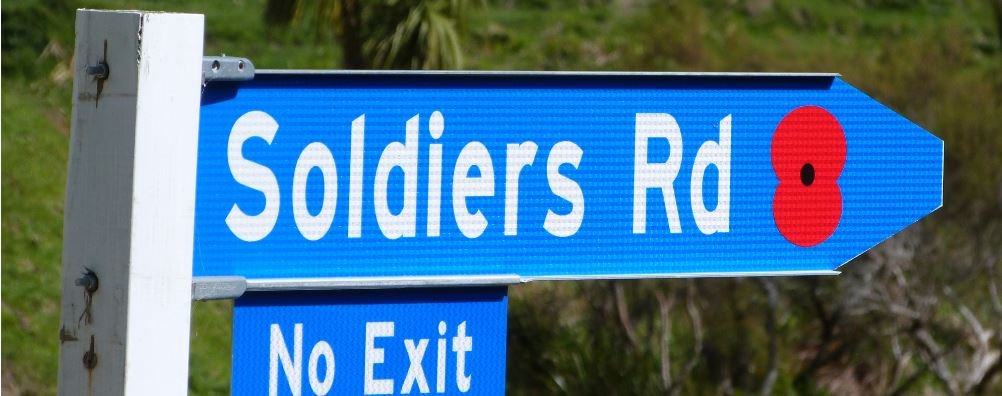Red poppies are immediately recognisable to New Zealanders as a symbol of Anzac Day, service and sacrifice.
The brilliantly coloured flowers will begin appearing on road signs around Central Otago as part of the New Zealand Poppy Places Trust project.
Alexandra-Clyde RSA executive member Paul Galloway said he contacted Central Otago District Mayor Tim Cadogan and councillor Tamah Alley tosee if the council would be interested in supporting the nationwide project.
At the August council meeting, all the councillors supported the project and agreed it could be rolled out to other areas in the region if the RSA groups wanted it.
Mr Galloway had undertaken the task of verifying what streets or roads in Alexandra and Clyde had been named in recognition of the efforts of those who had served.
For example, McArthur Ridge, near Alexandra, was not actually named for Alexandra school teacher Wilf McArthur who was awarded the Military Cross in World War 2, but for his family.
Researching the stories was fascinating and had led him down many rabbit holes, Mr Galloway said.
It was time consuming and probably a lifetime project but the heart of it was to preserve local history and present the stories in a way that was relatable and readable.
‘‘That makes it human and interesting. They are local people who did quite heroic deeds.’’
However, it was not just about those who were decorated, he said.
‘‘I say you don’t have to win a gong, you went — that was the sacrifice.’’
The names used for streets and roads in Central Otago were taken from cenotaphs and that meant most were men. However, at the August council meeting when Cr Alley raised that point, Cr Neil Gillespie said that would change.
The Central Stories Museum and Art Gallery had agreed to publish on their website the stories ofthose the streets and roads were named after, Mr Galloway said.
The process of establishing a Poppy Place was the RSA identified the road or street named after an individual who had served, registered it with the Poppy Places Trust and notified the council.
The RSA then researched and wrote a story that would be published on the Poppy Places Trust website and, in Central Otago, on the Central Stories website.
The council would install a replacement name blade for the road with a poppy on it. Roads named in the future for those who had served would immediately have the poppy sign installed.





